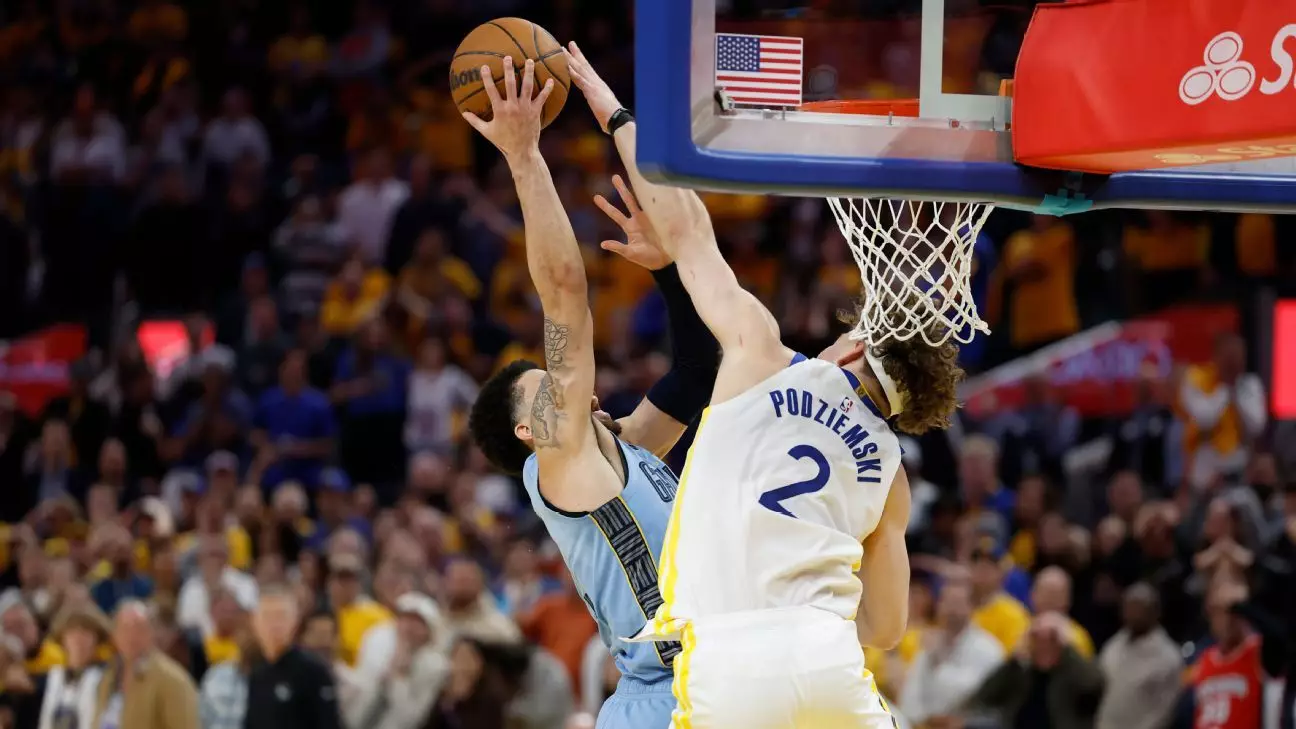In professional sports, the influence of officiating can create rippling effects long after the final buzzer has sounded. A case in point is the recent play-in game between the Golden State Warriors and the Memphis Grizzlies. When the NBA’s Last Two Minute Report confirmed multiple controversial calls in the game’s dying moments, it raised eyebrows and fostered discussion about the integrity of officiating in high-stakes situations. Errors made during critical junctures not only skew the outcome of games but also affect the psychological state of players, teams, and fans alike.
A Case Study of Misjudgments
The NBA identified two glaring mistakes in the final seconds: a dubious foul on Warriors point guard Brandin Podziemski and an incorrect out-of-bounds call that assigned possession erroneously. Such missteps highlight a fundamental flaw in how officiating can dramatically alter the momentum of a game. When Podziemski was whistled for a personal foul during what appeared to be a clean block, it allowed the Grizzlies a chance to trim a three-point deficit. The emotional rollercoaster for both teams was palpable; one moment, the Warriors held a comfortable lead, and the next, they were faced with undue pressure.
Moreover, if we analyze the psychology behind these decisions, we see that players often experience heightened stress during critical phases of a game. The added uncertainty of officiating mistakes can lead to reckless behavior and potentially skew further interactions on the court. This exacerbates the situation, as players react to the perceived injustices rather than focusing solely on the game at hand.
The Resolution That Matters
Despite these miscalls, the report did highlight one correct decision: a five-second violation on Memphis during a crucial inbounds scenario. In sports, officials are tasked with judging a series of split-second events, making their role inherently challenging. Yet, it’s this very complexity that demands consistent review and accountability. Accuracy in officiating isn’t merely about maintaining fairness; it’s also about preserving the essence of competition. Every correct call can reinforce trust among players, enhance the integrity of the league, and ultimately elevate the experience for fans.
Additionally, let’s not overlook the consequences of overlooked non-calls such as the foul on Draymond Green and the goaltending incident involving Zach Edey. These situations may appear trivial on the surface, but when dissected within the context of the game, they can rewrite narratives and determine postseason trajectories.
The Path Forward: Training and Enhancement
As technology progresses, leagues are considering enhanced training programs and the use of video assistance to lessen human error. Perhaps it’s time for the NBA to adopt a more streamlined approach that emphasizes continuous learning and adaptation for referees. By integrating data-driven analytics and video review mechanics more extensively, the league could mitigate the risks associated with officiating errors.
In the end, mistakes made by referees are not just blips on the radar; they represent crucial turning points in a season filled with high hopes and aspirations. For teams vying for the championship, maintaining equitable conditions on the court should be a priority, lest the game we love evolves into a battle not just against opponents but also against the uncertainties of officiating.


Leave a Reply